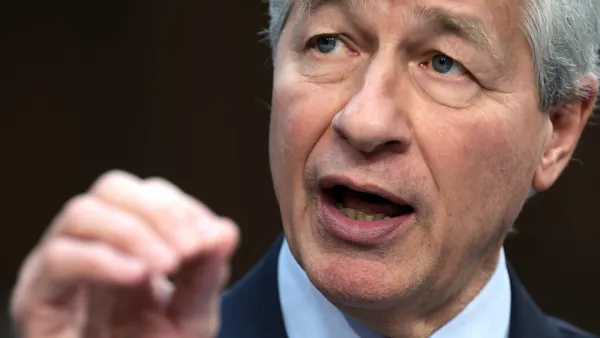The Commodity Futures Trading Commission will soon shrink to a two-member team after two commissioners announced their exits last week.
Commissioner Christy Goldsmith Romero announced Friday she would leave the commission May 31 and retire from federal service. Fellow Commissioner Summer Mersinger announced two days earlier she also would leave the CFTC at the end of the month. Mersinger, a Republican, will become chief executive of the Blockchain Association, the organization confirmed Wednesday.
“This decision is not easy, and it breaks my heart to leave the agency that I have grown to love so much over the last five years,” Mersinger said in a statement. “It has been a privilege to work and serve at the CFTC in both the first and the current Trump Administrations, doing my part to assist in pursuing the President’s important policies.”
Marta Belcher, the president of the Blockchain Association’s board, said she was “absolutely thrilled” to welcome Mersinger, who assumes her new role June 2.
“This is a pivotal moment for crypto policy, and we are confident that she is the ideal leader to take Blockchain Association, and the industry, to new heights,” Belcher said Wednesday.
Goldsmith Romero, a Democrat, said she is most proud of the CFTC’s work to “strengthen customer protection and market integrity.”
Both Goldsmith Romero and Mersinger have served on the commission since 2022. Mersinger was appointed to a second term last year and could have served through 2028.
Goldsmith Romero, meanwhile, may be most recognizable, of late, as the Biden administration’s nominee to lead the Federal Deposit Insurance Corp. after now-former FDIC Chair Martin Gruenberg agreed to resign in the wake of allegations in 2023 that a toxic culture had engulfed the agency. Goldsmith Romero’s nomination never received a vote by the full Senate.
“During my tenure, derivatives markets experienced significant growth, while remaining resilient and financially stable through times of market stress and volatility,” she said in a statement Friday. “For that, I am most proud of the CFTC’s work.”
Goldsmith Romero and Mersinger’s departures leave the CFTC with two commissioners: Acting Chair Caroline Pham, a Republican, and Kristin Johnson, a Democrat. And Pham has said she would step down once Brian Quintenz is confirmed to lead the regulator. Quintenz is a CFTC veteran who worked at the commission for four years before leaving the agency in September 2021. He has led Andreessen Horowitz’s crypto policy initiatives since December 2022.
The CFTC can still operate with a quorum of two members. But matters that require a vote, like approving the agency budget or enforcement actions, can be stalled if the two members cannot agree, Daniel Davis, a partner at Katten Muchin Rosenman and a former CFTC general counsel, told Bloomberg.
The functioning of some financial regulators has come into focus after President Donald Trump fired the National Credit Union Administration board’s two Democrats, Todd Harper and Tanya Otsuka, leaving the agency with no quorum and just one board member: Republican Chair Kyle Hauptman. The NCUA’s board usually comprises three members with no more than two belonging to the same political party.
The NCUA board can continue with its usual supervisory and enforcement duties with one member, but cannot vote to implement policy changes or approve new enforcement actions without a quorum of two members, the trade group America’s Credit Unions noted.
The CFTC, meanwhile, comprises five commissioners appointed by the president and confirmed by the Senate for a five-year term. At any one time, no more than three commissioners may be from the same political party. If the Senate fails to confirm a chairman, the commission votes to select one of the commissioners as acting chairman.













